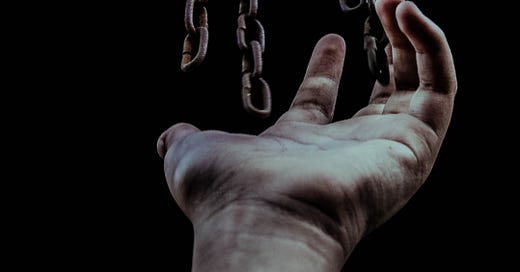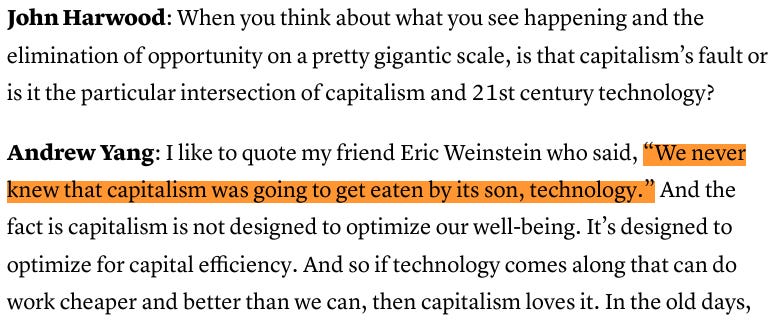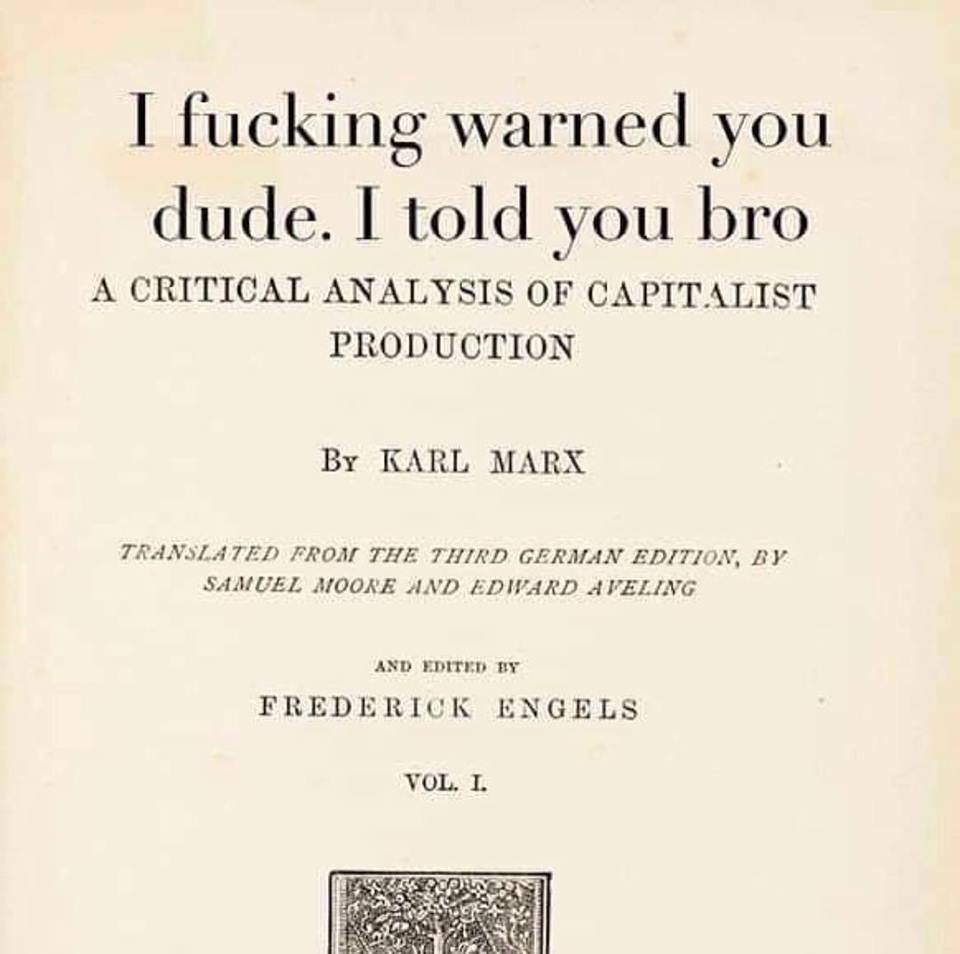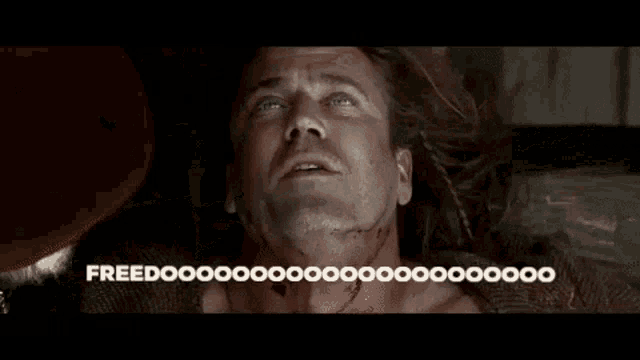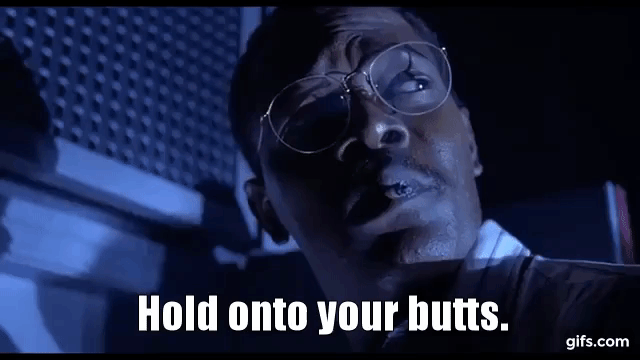This two-part essay is all about the growing problem of technology gradually making human labor redundant. In Part I, the fictional world of The Expanse served to illustrate the point. The writers of that popular sci-fi show extrapolated our current situation into the future, and a gloomy dystopia with mass unemployment is what they saw in store for us. The nature of the problem becomes clear when you get a glimpse the giant pitfall we’re marching toward. But in Part II, we will arrive at an optimistic conclusion by fixing our gaze backward in time instead of forward.
Let’s begin with the lovable Andrew Yang. Only a few years ago, this man devoted his 2020 presidential candidacy to this mounting problem with tech and employment. And good on him. He could have avoided some serious headaches by staying home and writing dystopian sci-fi about it instead. But he didn’t. Consider this snippet from a 2019 interview with CNBC:
Andrew repeated the highlighted quote any number of times on the campaign trail. And it bothered me every time I heard it. Why? Because Volume III of Das Kapital came out all the way back in 1894. That’s the book where Karl Marx suggested that technological innovation would cause what he called a “falling rate of profit”. He infamously concluded that there is a countdown clock baked into our system of making stuff, and that technology is the mechanism that makes it tick. Marx’s career altered the course of history in places like Russia and China. But here in the West, we prefer to remain as ignorant of his analysis as possible. That’s why Yang says “we never knew”. It’s not some secret, it’s just that we’ve been stuffing our fingers into our ears for the past 125 years.
Marx-adjacent ideas are popping up in our American presidential campaigns because we can all sense the rising economic chaos. Look no further than the candidacies of Bernie Sanders to understand that, even in America, these ideas are now en vogue. If Marx’s prophecy of doom is finally coming true then that means we are seeing the beginning of the end of our system. And since most of us have never known any other system, it feels like we are going over the falls in a barrel.
For centuries, we’ve organized ourselves into employers and employees when there’s work to be done. That’s our system. We’ve been doing it this way since the time of the Renaissance. Before that, work was done by lords and serfs. But then a pandemic (this should sound familiar), the Black Death, swept through Europe in the 1350s and wiped out a third of the population. There’s never a shortage of lords, but suddenly there were not enough peasants to work the lord’s fields. It wasn’t long before it dawned on the peasantry that they had all the leverage they needed to start making some demands (Great Resignation, anyone?).
The nobility was used to making the demands, and needless to say they did not appreciate finding themselves on the receiving end of them. But when they tried to violently enforce the old social order, they found that history had passed them by. When the dust settled common folks had won their “freedom”. By this they meant the right to shop themselves out to whichever master offered them the sweetest deal. And that’s the story of how lords and serfs came to be replaced by employers and employees. A new system was born to replace an old dying one.
That brings us to the notion that even the our oldest, most basic systems have life cycles. Folks who hold privileged positions within this system would like to think that it will last forever, preserving their cozy spot at the top indefinitely. And they’d love for us to believe it too. But that’s silly. Nothing lasts forever. These systems arise under a certain set of circumstances, but then those circumstances change and a new system is called for. That’s the moment is not far off. Karl Marx’s prophecy appears to finally be coming true.
What we’re experiencing, then, is not a fall off of a cliff. It’s actually a swing of the great pendulum of history. The folks living through the Renaissance endured a lot of chaos during that transition period. But any sane person looking back is forced to conclude that what felt like the end of the world was actually the beginning of something much better. The downswing of a pendulum feels disconcertingly like free fall. Having faith that an upswing will follow is much easier when we keep in mind the broad sweep of history.


